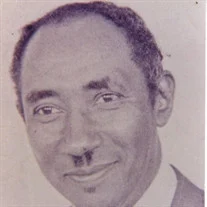In 1821, as Henry County officially took shape, a surge of pioneers arrived, bringing numerous enslaved individuals from the Eastern Seaboard, including states like North and South Carolina, Virginia, Maryland, and Alabama. Families, initially arriving with a few enslaved individuals, swiftly amassed wealth through lucrative cash crops and various forms of agriculture, significantly bolstering their incomes. As these families prospered, they began acquiring additional enslaved people, often from major cities such as Griffin and Macon. Among these families was the Weems family, situated in the Luella district of Henry County.
The patriarch, Samuel Sr., initiated the acquisition of enslaved individuals upon his arrival in Henry County in 1830. While precise numbers remain elusive due to the lack of detailed enslaved censuses until the 1840s, records from 1850 indicate approximately 30 enslaved people on the Weems property. By 1860, this number had doubled to around 60 individuals. Tragically, the anonymity of these enslaved families persists, with only a few names found in the cemetery where many were laid to rest after a lifetime in bondage.
Following the Civil War's conclusion in 1864, the dismantling of slavery in the United States unfolded. The Weems family, like others, had to emancipate their enslaved people, transitioning from slavery to the practice of peonage. While freed, many individuals opted to remain on the plantation for work, while others ventured elsewhere to forge their own paths. The challenge faced by these emancipated individuals was the absence of a distinct identity, leading many to adopt their master's surname not out of affection but as a practical measure.
In the post-Civil War era, the financial troubles of the Weems (White) family prompted some of the sons to file for bankruptcy, necessitating the sale of significant portions of their land to former enslaved members of the plantation. This transformation reduced the once sprawling plantation to a smaller section, as African American families built homes and embarked on independent lives.
The descendants of these former slaves persevered, building upon the legacy handed down by their parents and grandparents. Dr. Harold Grier of McDonough, a notable descendant, became one of the first African Americans in Henry County to attain a doctorate, dedicating his life to advocating for equitable housing in the United States. Another descendant, Ellie Lee Weems, an artist in Atlanta, achieved renown as a professional photographer for numerous African American schools in the Metro Atlanta Area, showcasing his exceptional talent and leaving an indelible mark on the community.
[1]: Norman R. Yetman, ed., Voices from Slavery: 100 Authentic Slave Narratives (Dover Publications, 2012), 175.





